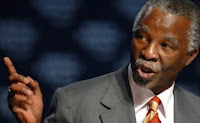One person governs himself. Two people cooperate or go their separate ways. More must agree on some things for the sake of each and all. Thus, government and public interest.
The public interest refers to the "common well-being" or "general welfare." The public interest is central to policy debates, politics, democracy and the nature of government itself.There is continual debate about what that actually means, but everyone is aware of the price if it's done poorly.
 Governance, then, particularly 'good governance' is about how well a government serves the interests of its' citizens, collectively and individually. Note the increasingly frequent uprisings and protests; from Egypt to Syria to Wall Street. And Kyrgyzstan (left).
Governance, then, particularly 'good governance' is about how well a government serves the interests of its' citizens, collectively and individually. Note the increasingly frequent uprisings and protests; from Egypt to Syria to Wall Street. And Kyrgyzstan (left).
Former South African president Thabo Mbeki in Uganda addresses issues of governance (right).
Globalization, and the new citizenry
Are we further obliged to 'not harm' other countries with our actions? That's the new question; what's the international impact of our national policies.
After US regulatory changes, Wall Street ran amok and slammed the world marketplace. The 2007-8 upheaval spiked inflation in Kenya to around 30% for a couple of years. Here, we were angry and worried about our retirement investments. In Kenya and elsewhere in the developing world, people went hungry and died.
The price of corn meal, the staple on which the poor survive, doubled. When you spend more than half your income on food, such a change is deadly. We did that to them. The U.S. government mandated 10% ethanol program contributed to the price increase.
The consumer price index in Kenya is up by 30+% since then. The change in the US is 7% for the same period.
In the US, we were annoyed by the partisan scrap over the debt ceiling last summer. The EU was struggling a bit with the Greek bankruptcy. In Kenya and elsewhere, living costs continue to rise rapidly and people continue to starve.

The emerging question on the world's agenda as we labor over the environmental impact of our existence; now we must also consider the impact of national economic policies as well. It's life or death on each front, and there are no simple answers to be found.
Have you thought much about your part in all this while it plays out? Things are moving rather quickly now; it's worth a thought or two.
A UNESCO study highlights wider human development impacts of the '08 financial crisis specifically, including the prospect of an increase of between 200,000 and 400,000 in infant mortality. Child malnutrition, already a rising trend, will be one of the main drivers of higher child death rates. "Millions of children face the prospect of long-term irreversible cognitive damage as a result of the financial crisis," says Montjourides. A few hundred folks did all of this.
Nothing. Nothing can describe the blinding fury evoked in a father's heart against the perpetrators for such actions.

